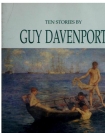Penguin Island - Anatole France (good book recommendations .TXT) 📗

- Author: Anatole France
Book online «Penguin Island - Anatole France (good book recommendations .TXT) 📗». Author Anatole France
The police made numerous arrests. Troops summoned from all parts of the National Federation protected the offices of the Trusts, the houses of the multimillionaires, the public halls, the banks, and the big shops. A fortnight passed without a single explosion, and it was concluded that the dynamitards, in all probability but a handful of persons, perhaps even still fewer, had all been killed or captured, or that they were in hiding, or had taken flight. Confidence returned; it returned at first among the poorer classes. Two or three hundred thousand soldiers, who bad been lodged in the most closely populated districts, stimulated trade, and people began to cry out: “Hurrah for the army!”
The rich, who had not been so quick to take alarm, were reassured more slowly. But at the Stock Exchange a group of “bulls” spread optimistic rumours and by a powerful effort put a brake upon the fall in prices. Business improved. Newspapers with big circulations supported the movement. With patriotic eloquence they depicted capital as laughing in its impregnable position at the assaults of a few dastardly criminals, and public wealth maintaining its serene ascendency in spite of the vain threats made against it. They were sincere in their attitude, though at the same time they found it benefited them. Outrages were forgotten or their occurrence denied. On Sundays, at the race meetings, the stands were adorned by women covered with pearls and diamonds. It was observed with joy that the capitalists had not suffered. Cheers were given for the multimillionaires in the saddling rooms.
On the following day the Southern Railway Station, the Petroleum Trust, and the huge church built at the expense of Thomas Morcellet were all blown up. Thirty houses were in flames, and the beginning of a fire was discovered at the docks. The firemen showed amazing intrepidity and zeal. They managed their tall fire escapes with automatic precision, and climbed as high as thirty storeys to rescue the luckless inhabitants from the flames. The soldiers performed their duties with spirit, and were given a double ration of coffee. But these fresh casualties started a panic. Millions of people, who wanted to take their money with them and leave the town at once, crowded the great banking houses. These establishments, after paying out money for three days, closed their doors amid mutterings of a riot. A crowd of fugitives, laden with their baggage, besieged the railway stations and took the town by storm. Many who were anxious to lay in a stock of provisions and take refuge in the cellars, attacked the grocery stores, although they were guarded by soldiers with fixed bayonets. The public authorities displayed energy. Numerous arrests were made and thousands of warrants issued against suspected persons.
During the three weeks that followed no outrage was committed. There was a rumour that bombs had been found in the Opera House, in the cellars of the Town Hall, and beside one of the Pillars of the Stock Exchange. But it was soon known that these were boxes of sweets that had been put in those places by practical jokers or lunatics. One of the accused, when questioned by a magistrate, declared that he was the chief author of the explosions, and said that all his accomplices had lost their lives. These confessions were published by the newspapers and helped to reassure public opinion. It was only towards the close of the examination that the magistrates saw they had to deal with a pretender who was in no way connected with any of the crimes.
The experts chosen by the courts discovered nothing that enabled them to determine the engine employed in the work of destruction. According to their conjectures the new explosive emanated from a gas which radium evolves, and it was supposed that electric waves, produced by a special type of oscillator, were propagated through space and thus caused the explosion. But even the ablest chemist could say nothing precise or certain. At last two policemen, who were passing in front of the Hôtel Meyer, found on the pavement, close to a ventilator, an egg made of white metal and provided with a capsule at each end. They picked it up carefully, and, on the orders of their chief, carried it to the municipal laboratory. Scarcely had the experts assembled to examine it, than the egg burst and blew up the amphitheatre and the dome. All the experts perished, and with them Collin, the General of Artillery, and the famous Professor Tigre.
The capitalist society did not allow itself to be daunted by this fresh disaster. The great banks reopened their doors, declaring that they would meet demands partly in bullion and partly in paper money guaranteed by the State. The Stock Exchange and the Trade Exchange, in spite of the complete cessation of business, decided not to suspend their sittings.
In the meantime the magisterial investigation into the case of those who had been first accused had come to an end. Perhaps the evidence brought against them might have appeared insufficient under other circumstances, but the zeal both of the magistrates and the public made up for this insufficiency. On the eve of the day fixed for the trial the Courts of justice were blown up and eight hundred people





Comments (0)